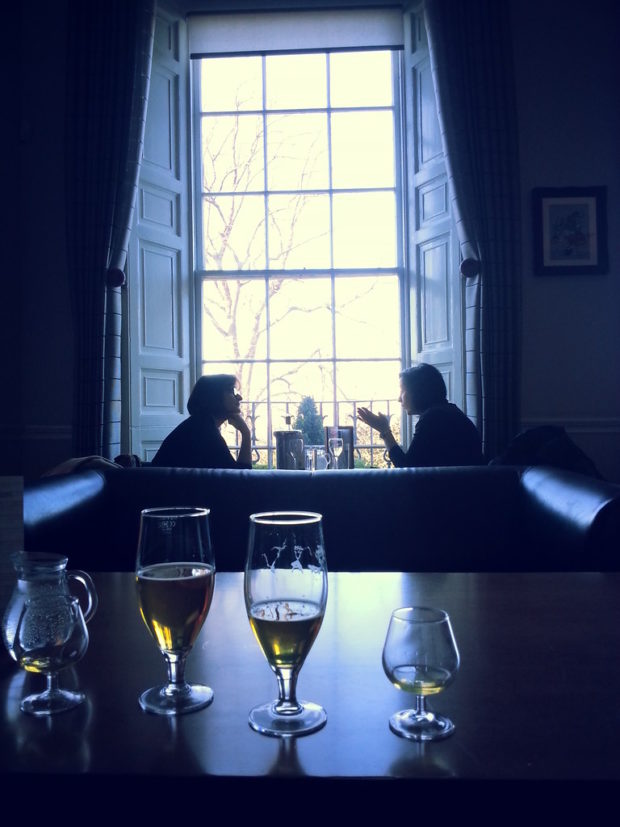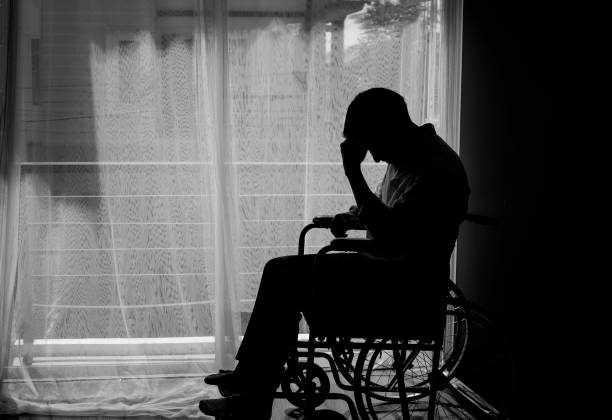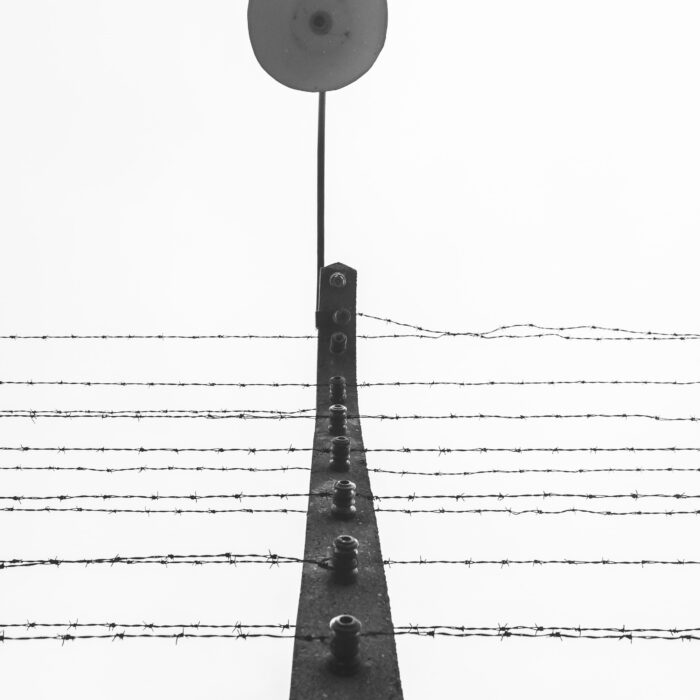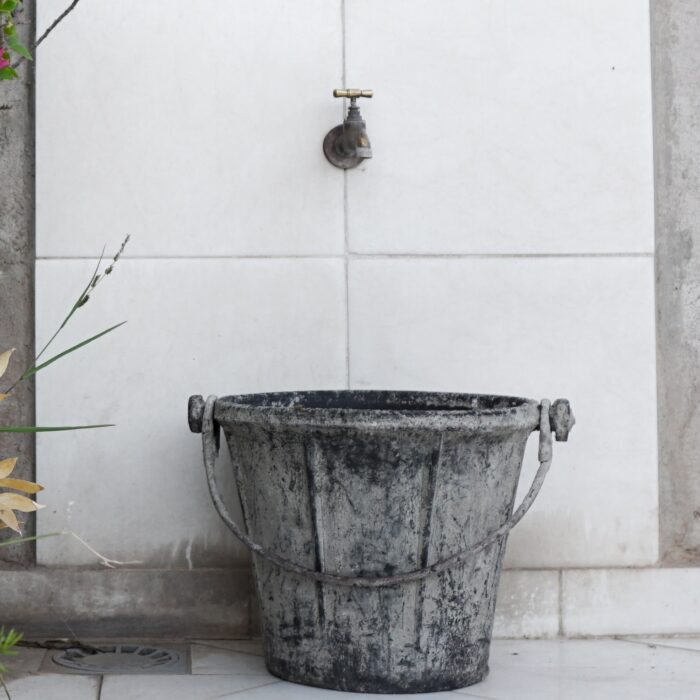You have no items in your cart. Want to get some nice things?
Go shopping
“I can still taste the shock of it, hot like gulped coffee, and underneath feel my quick furtive smile.”
I’m very fond of the Whisky Society. It has all the trappings of an old-fashioned, fusty gentleman’s club – oak-panelled walls, a pair of magnificent fireplaces flanked by armchairs, rows of hardbacks bound in gold-stamped cloth – but remains singularly free of fusty gentlemen. Anybody can join, and for a paltry fee marinade themselves from eleven in the morning to midnight in the finest single malt scotch. I was waiting with a glass in my hand when my friend appeared from nowhere in the other armchair.
‘Fraser! Wasn’t sure you’d make it.’
He lifted an eyebrow, settling into the welcoming leather and snapping out his cuffs. Fraser had always been something of a dandy, and his elevation from our modest ranks to the intoxication of lower senior-middle management had only confirmed the trend.
‘I wasn’t sure I would come, you know, but I found myself in this part of town and something drew me in.’
‘Speyside?’
He nodded. As I went for the whisky and the water jug he flicked away a minuscule speck of lint from his sleeve. There were midnight blue stains on his fingers, ink I supposed, alongside smudges of what appeared to be brick-dust on his shoes, but he seemed not to have noticed those. ‘Here you are. To your health.’
‘And yours. I’m not so sure of things as I used to be, but this never changes.’
He dipped his nose into the bulb and sniffed, tasting the cask-strength liquor appreciatively, then adding a dash of water. Colour appeared on his cheeks like carnations in an undertaker’s window.
‘Well, I’ve had an absolute bastard of a day, and was going to be here whatever happened, to be brutally frank.’ I expected him to smile and show the usual interest, ask after his erstwhile colleagues or simply react to whatever had happened, but he just stared into the fire. The flames leapt strong and high against the drizzle outside. The light was almost gone. As I watched it seemed to creep away into that thick, unpleasant caramel shade that seems to haunt the end of Edinburgh days.
‘Are you interested in stories?’ he said.
*
‘I haven’t moved into private office, if that’s what you’re thinking,’ Fraser said. ‘I might be career-minded but I’m not insane. No, just a sideways move to an up-and-coming policy area, you know: social alienation, then another to – well, it isn’t that interesting, to be honest with you. But I’ve been so busy I haven’t had much time for anything else, at least nothing I’m conscious of. I still get out and about but after work the days seem to fold up like a concertina.
‘The last time I recall really enjoying anything was that night at the end of the festival. Last year’s a bit of a blur, particularly round the bloody promotion board, but that night I do remember. We were at the branch in town, remember? The whisky there’s just as good, the building better, if anything, but the inside looks too pristine, don’t you think, like someone’s stripped it down for a quick sale to some faceless corporation? They had that wonderful highland malt and we kept at it till I felt like I’d drunk half the ocean.
‘You left to get a cab but I wanted to walk so I set off on foot, wobbly as an unmoored ship drifting out of the dock. The night buildings were stark and shadowy. Buses passed by on Princes Street. A few revellers poked out of alleyways and peeled off, and I started to feel lonely. Perhaps I ought to head up to the station and catch a bus. As I passed the bright windows of the McDonald’s I heard someone retching in a ginnel.
‘The bus shelter was dark when I got there, its domed light smashed-in. I perched on that mean little bench they’ve installed to make the tramps slide off, and tried to stay upright. The good cheer was draining away more quickly than usual. I could still hear whoever it was back there, vomiting heartily, and there wasn’t a bus or even another person in sight. I patted my inside pocket for a book but realised I’d left it in my other coat and stood up to pass the time with the bus timetable. Then it happened. At the same moment the retcher passed my shelter – a woman, by the look of things, wiping her mouth on the sleeve of her spangled top – I noticed the advertisement. I can still taste the shock of it, hot like gulped coffee, and underneath feel my quick furtive smile.
‘A chesty model in her underwear was positively leaning out of the picture. The fabric was a light chocolate brown, stretched tight across her chest and abdomen till it shone like a layer of brass. She had her hands clasped behind her back (presumably for leverage, so she could thrust out even further from the picture in a look-at-these gesture) and presented a slim oval, dark as a post box slit, between her glossy pouting lips. Come and Get It, Boys read the caption. I wouldn’t have noticed – well, maybe I would – but for the wiry stickman leering over her shoulder, one spiky hand against her flank, the other thrust rudely, almost possessively, at the back of her head. He was two feet away from the woman but that didn’t stop his monstrous horse cock, thick as her wrist, snaking up and disappearing between the cleft of her buttocks. He had one eyebrow raised, and his head tilted at the audience. There was no caption but in the far bottom, just above the advertiser’s name, was a signature, The Mist, trailing away into tendrils of vapour.
‘I’d never seen anything like it. I stood and stared and chortled till my bus came. I was still thinking about it the next morning. I had a catch-up meeting planned with the head of the social alienation unit, and mentioned the picture over coffee.
‘Cartoon, eh?’ he said, pouring liquid creamer into his mug with abandon. It slopped out of the sides, pattered on the thin grey carpet.
‘No, Heath, not just any old cartoon. This was something different, something – profound, I suppose. It had something to say.’
‘What, the guy wants to play hide the salami with a lingerie model? Who doesn’t!’ He laughed with a sound like a blocked sink and disappeared into his office. But the image stuck with me and kept ringing up in my mind like a sale tab in one of those old-fashioned cash registers. What was the purpose of it? I wasn’t sure, but suspected the mind at play behind those bold slashing lines and devilish grin had something to impart. After all, it could just as easily have read Jambo Cunt or something equally stupid. This had more to it. After supper I prepared myself a large whisky and green ginger, and settled down to think about it.
‘Ridiculous, really, wasting so much time on a trifle like that, but the night was wild and damp, the long summer day had blown itself out in a puff of heat and dust. I wasn’t going anywhere. I watched fat raindrops sliding down the glass. The sheer cheek of it was what gripped me, I realised – that irresistible urge to seize on what offended you and lance its poison with vast, ridiculous mockery, out of all bounds and proportion. I imagined The Mist, whoever he was, strolling back and forth in front of the advert a few times like a curator with a new acquisition, sizing up the right pitch and moment for his attack, perhaps humming The Circle of Life between rapid breaths, then ambling away and returning like an avenging plague at midnight, Sharpie in hand. That stickman stood for all the perversion of the world, its cheapened sensuality, the bountiful harvest of flesh both proffered and retracted in the picture’s soulless gleam. I thought I had it figured it out when it occurred to me how brutally the little ghoul was treating the woman, where and why he was firing his dart, and I tumbled back to the beginning. I turned on the radio but it must have been missing a connection.
‘All that came out of the speakers was a rush of static.’
*
Fraser stopped. I was certainly interested in the story, and said so. A vague smile appeared on his lips and he gestured with the snifter, pulling his green membership card from an inside pocket and handing it across.
‘Put the next few rounds on there,’ he said. I raised my eyebrow then quickly thought better of it. Now he was nine thousand and change ahead of me in the salary stakes, if he wanted to pick up the tab that was fine with me. His face wore a look of absolute seriousness. ‘Just leave it at the bar.’
*
‘The next time I came across The Mist I was consoling myself with pastry,’ said Fraser. ‘Things had gone pear-shaped at the office, and not just the usual sour-faced sort of downturn you get after six months with new people and grim reality dawns. This was much worse. The whole unit was shaking in its boots, though most of them were doing so quietly enough to alert the others without rousing the boss. No one talked openly – actually no one talked much at all – but everything was bubbling away under the surface like lava.
‘You know that Sicilian bakery, just round the corner from the flat? Its tiny, a strange little oasis in a sea of anonymous commercial frontage. As the pressure built at work I would hide out in macaroni pies and fish suppers slathered with salt and sauce, but my latest stress-management tool was sweet pastry. I hooked a cannoli out of a grease-spotted bag and sucked on the sweet cheese as I turned down Easter Road. Some wag had scrawled Edinburgh City Council and Local Government Drink Piss on a brick wall. I dismissed it at first, more interested in that little nubbin of sweet powder where the two halves of the pastry met, but then I turned around with a half-smile. Whoever did the deed had sense enough to distinguish between elected members of the council and the local government staff who implemented their policies (though both seemed to have odd tastes in refreshment). Perhaps it was The Mist, but on an off-night.
‘At the junction by the weak railway bridge, which shook every time a train ran by, was a long billboard. I walked round the semi-permanent barrier they’d erected to protect pedestrians from the road works and noticed he had been in the area, after all. Stockings this time, plastered on a gigantic pair of legs, tall and brown and magnificent as the trunk of a redwood tree. In the picture, spotlights sparkled off sheer material, running up and down the model’s thighs in slow strokes till they rounded out into surprising dark at the top of the poster. Next to her left leg was a fully-clothed, spiky stickwoman. She wore a business suit hatched in bold strokes and had a sombre, reflective face. Her index finger pointed to the logo, then the company name slashed through and replaced with another in magnified, flourishing italics: Gross-ad. ‘I am not a sexual object’ was printed in an indignant speech bubble underneath.
‘I burst out laughing, spraying the lapels of my suit with crumbs. The world seemed a little bit brighter, more of a sane place for a moment or two. At the door of the tenement it occurred to me I’d seen two, possibly three of these masterpieces on my walks around town. Did he live round here? Perhaps I’d catch him at work. I could slip him my card, have him come along and lecture the unit on citizen empowerment and alternative channels for social expression. A pigeon gobbled somewhere overhead, and I slid my key into the lock.’
*
Fraser was staring into the fire, the dregs of his whisky sliding round the bottom of the glass. ‘Two or three masterpieces, yes – and then what?’
‘What do you mean, then what?’ Fraser looked up. Small tendrils of red were creeping in towards his pupils.
‘I mean, you asked if I liked stories, and I do. How does this one end?’
A breeze was gathering outside the window. Small drops of rain knocked like fingers on the glass. Across the other side of the room someone lurched into a chair and sent a water jug tumbling. Fraser shifted around in the leather chair, first crossing and then uncrossing his spindly legs. He placed his palms down on the leather.
‘I didn’t walk into the job with my eyes shut, you know. Far from it. It came with a banner headline. Troubled unit, lots of staff churn, bit of a mystery why it wasn’t firing on all cylinders. I was stupid enough to think I could change it, turn things around. But really, there’s no curing cancer. You just have to cut it out or it’ll carry on rotting outwards till everyone slides into their grave.’
‘Fraser?’
In the uncomfortable silence after the broken pottery had been cleared up, my voice sounded unnaturally loud. His gaze had drifted outside and I brought him up sharp. ‘Your glass appears to be empty.’ I settled back into my chair. For a moment he sat there uncomprehending, then light dawned and he went over to the bar. When he came back he was smiling.
‘Two of the saltiest, seaweediest island malts, my lad. Dose of the sea already in ’em. Drink up!’’ We upended our glasses.
‘Better,’ he said. ‘Better. Didn’t mean to go around the houses, but you needed to know. His last scheme, believe it or not, the one before I – ah, before we came to a mutual understanding that the best way forward was a strategic relocation – well, his last great idea was house sitters.’
‘House sitters?’
It sounded like an organised squad of seagulls.
‘House sitters – as in professional busybodies parked in the front rooms of the socially alienated, the ASBO crowd, you know, the common folk, to perk the buggers up.’ Fraser snorted. ‘He used to refer to people as schemies, in public, this is, as pond life. “Get some shock troops into the ghettos, keep an eye on the pond life.” This in the guy’s office, fifteen yards from my team. And he meant it. The fuckwit wanted to kit out a bunch of underemployed social workers in tweedy uniforms and get them out and about in the community. He thought it would send a rocket through the ranks, and he’d ride its tail to head of group. Fuck him.’
I’d never heard him talk like this, not the language or the bitterness. Somehow it didn’t sit with his five hundred pound suit, the platinum cufflinks and perfectly pointed handkerchief. I waited for more but that seemed to be the lot. From over my shoulder I heard the soft chimes of the bell, then the white haired gentleman beginning his rounds. I gathered up my briefcase and coat and we walked out into the night.
*
The world outside was dark and damp. From the long curved housing block opposite the Society came the sounds of television and radio, an occasional child calling, all muffled by a clinging mist. We walked across the cobbles and through iron gates out to the street. The city had installed electronic journey update screens for our route home; one stood next to the shelter on a long pole, its flat grey pupil pulsing against a black screen. We settled in under the glass and stretched our necks for any sign of a bus.
‘Don’t you feel as though you did some good, though, after all that?’ I asked.
‘Good how, exactly?’ Fraser’s voice was disappearing into the rolled up collar of his raincoat. His hands sought out the belt, winding it protectively round his middle.
‘Well, I don’t know – injecting a bit of realistic thinking into what was going on, helping, you know. Clarifying things.’
‘The only thing I helped was myself by getting out of there.’ He reached up to the screen and tapped it. Nothing. ‘I certainly didn’t help the situation. He’s still there, chortling about the lower orders behind closed doors, and I’m monitoring the shit they pump into the drinking water. On a good day I count the seals.’
‘Pardon?’
‘In the old dock, behind the office. We get seals every now and then, as well as seagulls. Always the bloody seagulls. I once saw a rat slip into the water. Like a little hairy crocodile, it was.’
I could see he wasn’t happy and gave up. Perhaps the bus would be along soon and we could get away home. I wasn’t sure how to handle the silence. He had turned away from me and was staring through the scratched glass towards the end wall of a pub across the road. Its lower half was yellow sandstone, the edges of the stones marked with mortar, its surface chipped here and there by stones thrown up from the road. But they had painted the top half in bold glittering white. An enormous bosomy question mark snaked up one side, a slim red and blue drinks can on the other. Between them was four or five feet of virgin white space, with some banal strap-line running along beneath.
‘Fraser?’
I noticed our bus nudge over the bridge at the far end of the street.
‘Something to do,’ he murmured, moving out towards the road. As the bus pulled up its brakes squealed, the rubber-lined doors flapping open like bat’s wings. I walked to the platform.
‘Fraser?’
But he’d disappeared in the direction of the pub. As I climbed aboard and scanned my card I thought I saw a fleeting shape pass in front of the whitewashed wall, but when we pulled away it turned out to be nothing. The mist turned into rain, and the bus bumped away over the cobbles.
James Roderick Burns
James Roderick Burns’ work has appeared in The Dead Mule School of Southern Literature, Flash Fiction Magazine and La Piccioletta Barca, as well as a short-fiction chapbook and three poetry collections. His story ‘Trapper’ (Funicular Magazine) was nominated for Pushcart 2020. He lives in Edinburgh and serves as Deputy Registrar General for Scotland.




